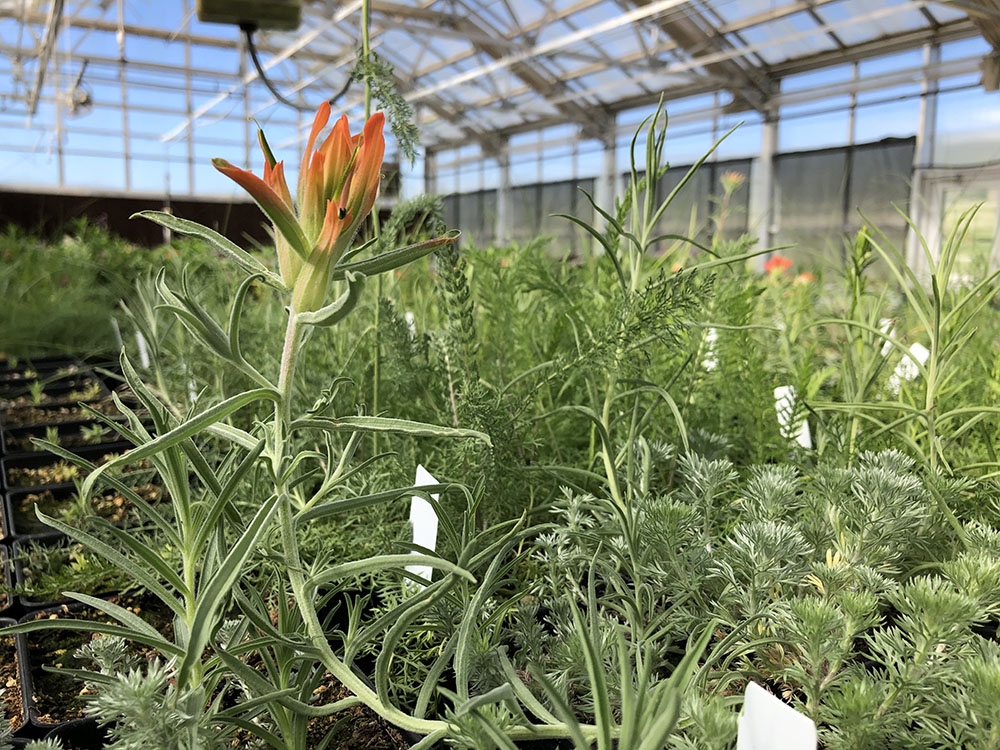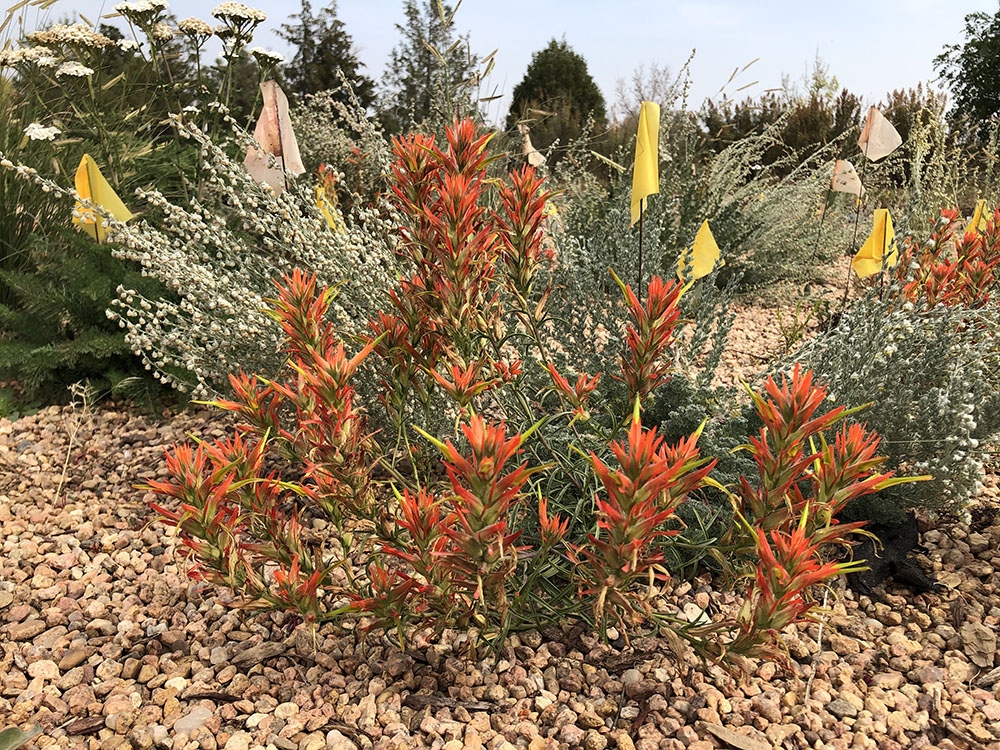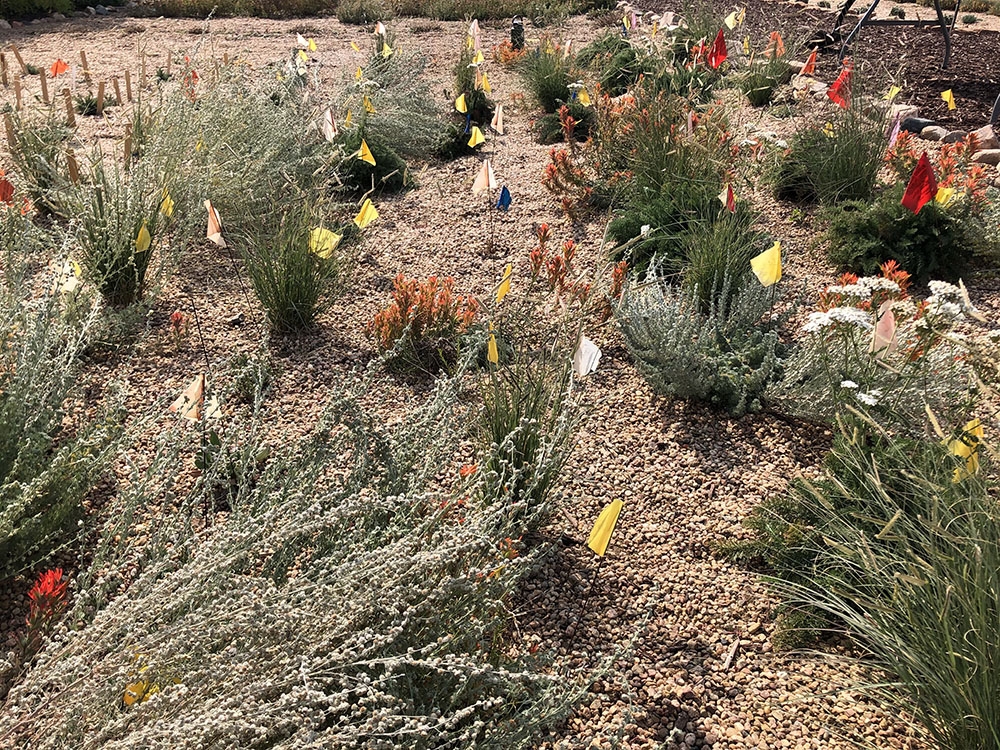Plant Matchmakers
Here at the Gardens, our horticulturists are always searching for new and charismatic plants to grow and display. This ambition leads our staff around the globe on exploration trips from Patagonia to Kazakhstan to observe, document and collect new plants and bring fresh information to the public. Although our focus can often be abroad, we recognize that there are also gardening challenges closer to home. In fact, some of our region’s most charismatic and abundant plants are frustratingly difficult to propagate, establish or maintain in garden settings.
For some plants, propagation is the problem: plants may germinate poorly from seed or suffer in greenhouse environments. In garden settings, our difficulty growing certain species may arise from an inability to create the necessary cultural conditions in the garden (e.g. soil drainage, soil chemistry, specific mineral substrates) or some other environmental mismatch between a plants’ natural environment and garden conditions (e.g. differences in temperature or natural precipitation regimes). However, it’s also clear that relationships with other organisms – bacteria, fungi and other plants – rather than environmental conditions per se, may underlie some horticultural disappointments.
For example, native lupines (Lupinus spp.) are challenging to maintain in cultivation despite a broad geographic and elevational distribution and high abundance in native plant communities. Lupines, like other plants in the pea family, have symbiotic relationships with various root-associated microbes (including Rhizobium spp.), which help them acquire nutrients from the soil. This raises the possibility that we are able to create suitable cultural conditions for lupine plants, but not for the associated microbes that they rely on.
Paintbrush (Castilleja spp.) are similarly tough to grow in gardens because they are hemi-parasitic organisms, meaning that they rely on host plants to supply carbohydrates and other nutrients (see my other post, Paintbrush: Colorado's Vampire Plants). Although their seeds are relatively simple to germinate, paintbrush will often behave like annuals, living for only a single growing season without a suitable host. Past research has shown that the identity of host plant is an important factor in survival of paintbrush in garden settings, but there is little empirical evidence to support specific host plant pairing recommendations and a poor understanding of how host plant identity affects long-term survival in cultivation.
To address these open questions, we’ve set up a controlled experiment at Chatfield Farms where we are trialing six species of Castilleja native to Colorado matched with combinatorial treatments of six host plant species to assess how host plant identity might affect the performance of paintbrush under cultivated conditions. We are measuring the growth, survival rate and fecundity (seed production) of all Castilleja-host plant combinations in the study over the course of three years. We have also completed germination and greenhouse experiments to hone propagation procedures and are using tissue culture to grow paintbrush and host plants together in vitro (in glass). This laboratory method allows us to directly observe the infiltration of Castilleja into host plant roots and better understand the timing of Castilleja’s parasitic behavior during plant development.
Our results are only preliminary, so we can’t share details right now, but so far we are observing stark differences in paintbrush survival and growth based on the species of host plant each paintbrush species is paired with These experiments will help us better understand how to optimize the growth and survival of paintbrush in cultivation. Hopefully as a result, you’ll see more Castilleja on display at the Gardens—or even at our plant sales— in years to come.
Gallery




Comments
Unusual plant
Michael Guidi:
Hi. I think I have a unique plant.
May I donate to DB? Or is it not accepted. May I sen you photo?
Thanks.
Plant donation
Hi Tomoko,
Please email horticulture@botanicgardens.org and direct your question to Jessica. She will be able to let you know whether or not we can accept your plant.
Tiffany
Add new comment